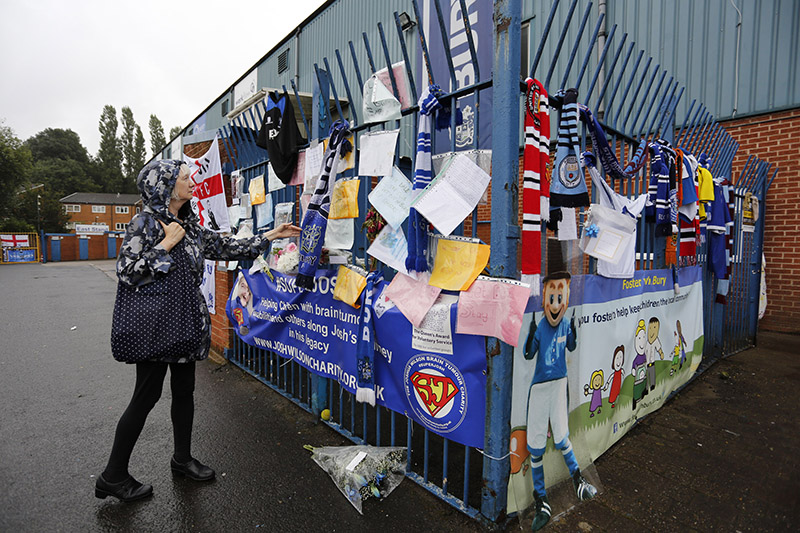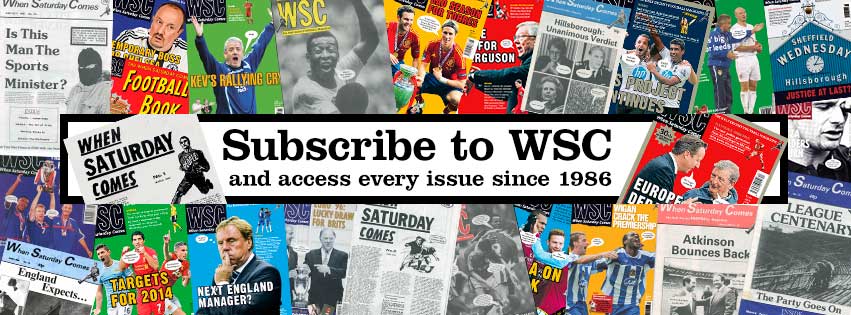
The plights of Bury, Bolton and the many other League clubs in financial difficulty reflect a broken system that needs a radical new regulatory approach
23 September ~ The desperate events at Bolton and Bury might suggest differently but Football League (EFL) clubs’ finances are among the most scrutinised in the world. In the Championship clubs have to meet a Profit and Sustainability test which limits the amount that can be lost over a three-year cycle. Potential sanctions include transfer embargoes, fines and points deductions – although clubs regularly agitate to relax these rules and spend more. In Leagues One and Two there is a Salary Cost Management Protocol, in effect a wage cap system. There is the reformed Owners and Directors Test and the EFL has acquired the power to charge individuals, as well as clubs, with finance and governance offences.
Nevertheless about ten per cent of EFL clubs are in some form of ongoing distress so, for all the systems in place, something is broken. Bury appear to be the victims of serially awful ownerships and a vetting procedure that buckled under time pressure. At Bolton, who were the first League club for six years to go into administration, an agreed sale in early August was blocked by another prospective buyer who had previously failed with a takeover bid in April.
The EFL is the administrative body of its competitions. But the administrators are not the sovereign power; that is the member clubs, collectively. They decide what the rules are and the pace at which they move isn’t necessarily what the administrators or public opinion would want. In the various discussions about Bury and Bolton, some of which have been led by Accrington owner Andy Holt, it has been suggested that the EFL take temporary control of seriously stricken clubs, a kind of bridging ownership. But, lasting for more than a few weeks, this would give rise to a conflict of interest – the EFL being both participant and rule-enforcer. The EFL could use the “profits of justice” – the fines levied against clubs breaking spending rules (there’s a couple now in the Premier League that might one day have to pay) – to subsidise those in financial crisis. But that would be ludicrous if their overspending was the cause of the crisis. Whatever the rules there always seems to be some way around them.
In the 1990s the conflict was with chairmen willing to do things such as burn down a stand (Doncaster) or sell the stadium for superstore development (Brighton). Both clubs are now in a better place than they were then. Today those problems look relatively mundane. There’s an arms race between the burgeoning debt – EFL clubs lost £400 million in 2017-18 – and the controls needed to curtail over-ambitious or wayward owners. What to do, for example, about the fashion for raising capital by selling the stadium as three Championship clubs have recently done?
Like Charlton and Coventry before them, Bolton’s woeful recent experience is that of a medium-sized club unable to adjust to relegation from the Premier League, their problems being compounded by the death of long-term benefactor Eddie Davies in 2016. Their debt was quoted at one point as £173m. Short of cancelling that and making enemies of other clubs, it’s unclear how they will they ever get out of the burden as League Two, at best, seems the next destination.
The EFL has to grapple both with the sheer weight of money being lost and the often bewildering behaviour of many owners. Fans question whether this task should be located elsewhere. The Football Supporters’ Association is proposing that the FA, as the game’s governing body, should take on the regulatory role for professional clubs. The proposal would create a new protected status, analogous to listed buildings, which places clubs (described as “the biggest expression of community identity in our society”) above the usual strictures of company law. These would be truly radical measures and widely welcomed by fans if not by the opaque, shape-shifting owners who have created much of the current chaos. Those who have invested vast amounts into clubs, much of which they lose, might not be prepared to continue in the event of the FA taking overall charge. But that seems like a reasonable exchange. Sustainability and ambition are in constant conflict in English football while the stakes are getting higher all the time. Though it’s little immediate consolation to their fans, Bolton and Bury, like Aldershot, Chester, Newport County and others before them, will rise again.
Thanks to Roger Titford
Photo by Paul Thompson/WSC Photos: A fan reading messages of support for Bury FC outside Gigg Lane the day after the club’s expulsion from the Football League
This article first appeared in WSC 391, October 2019. Subscribers get free access to the complete WSC digital archive – you can find out more here
